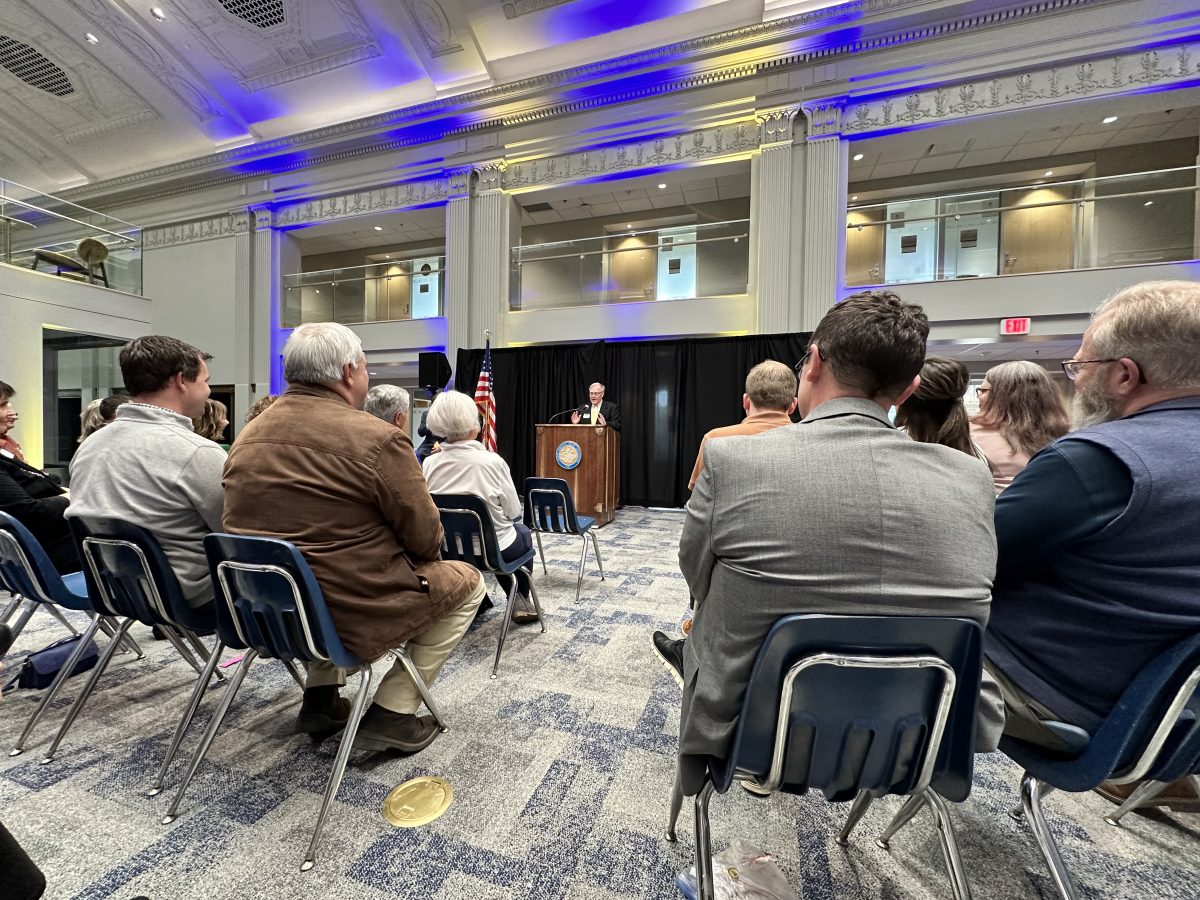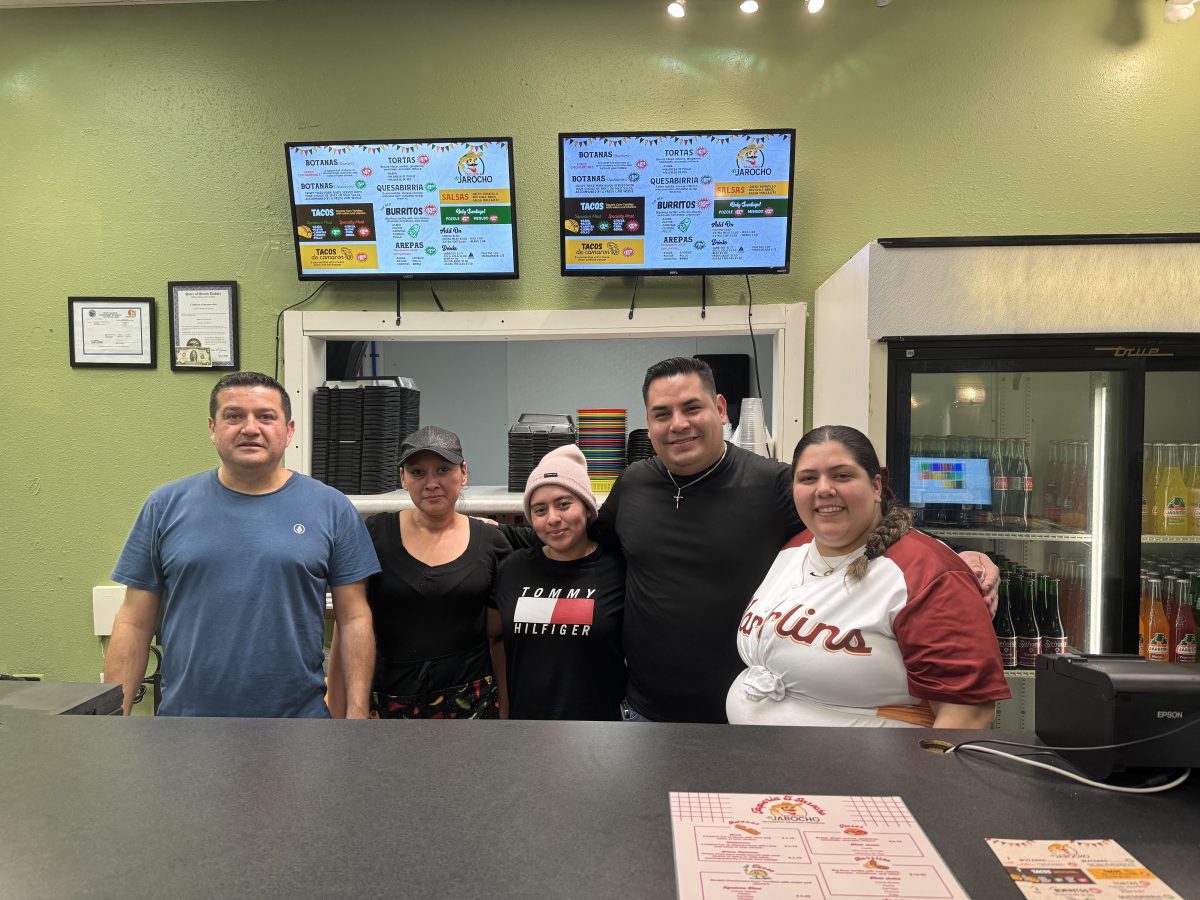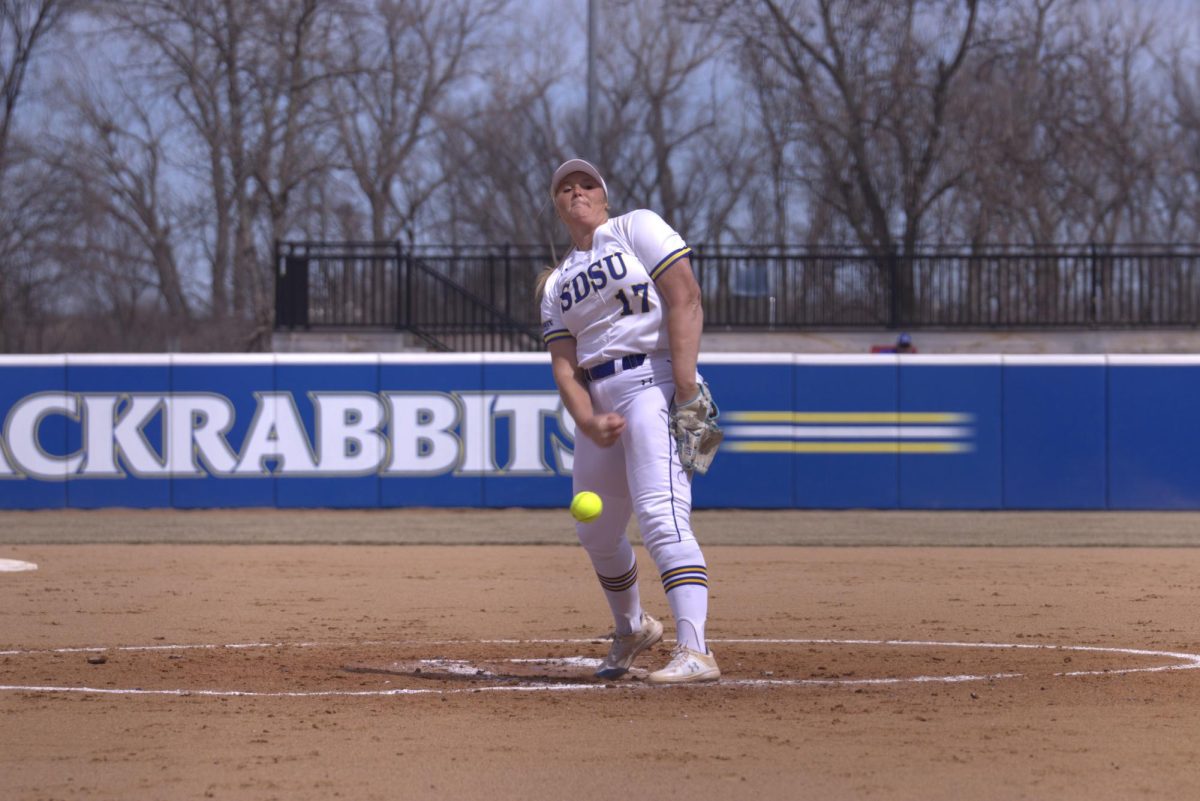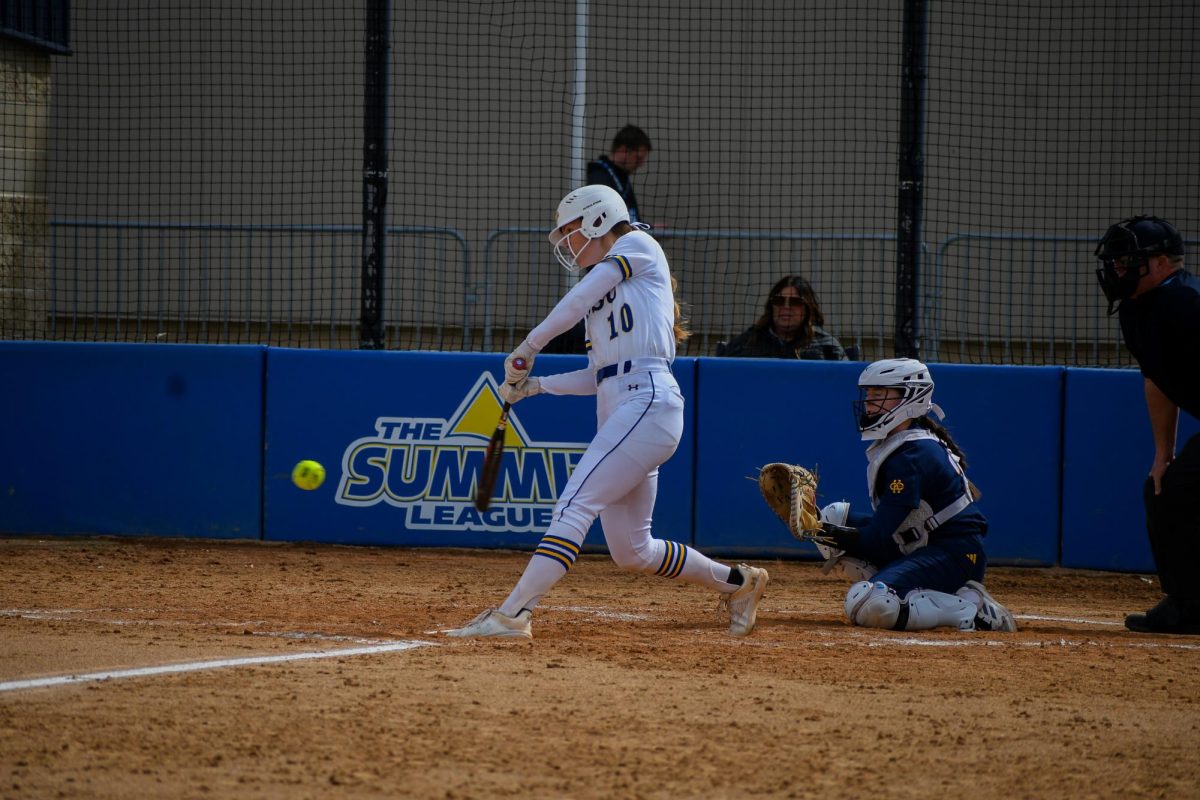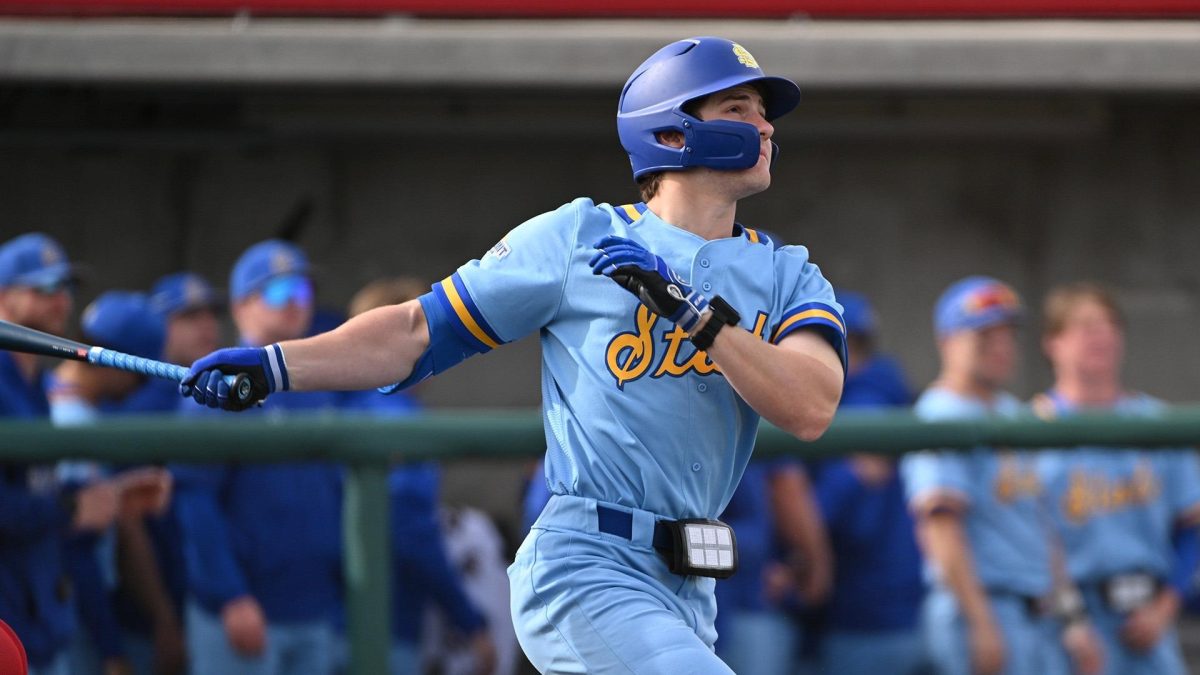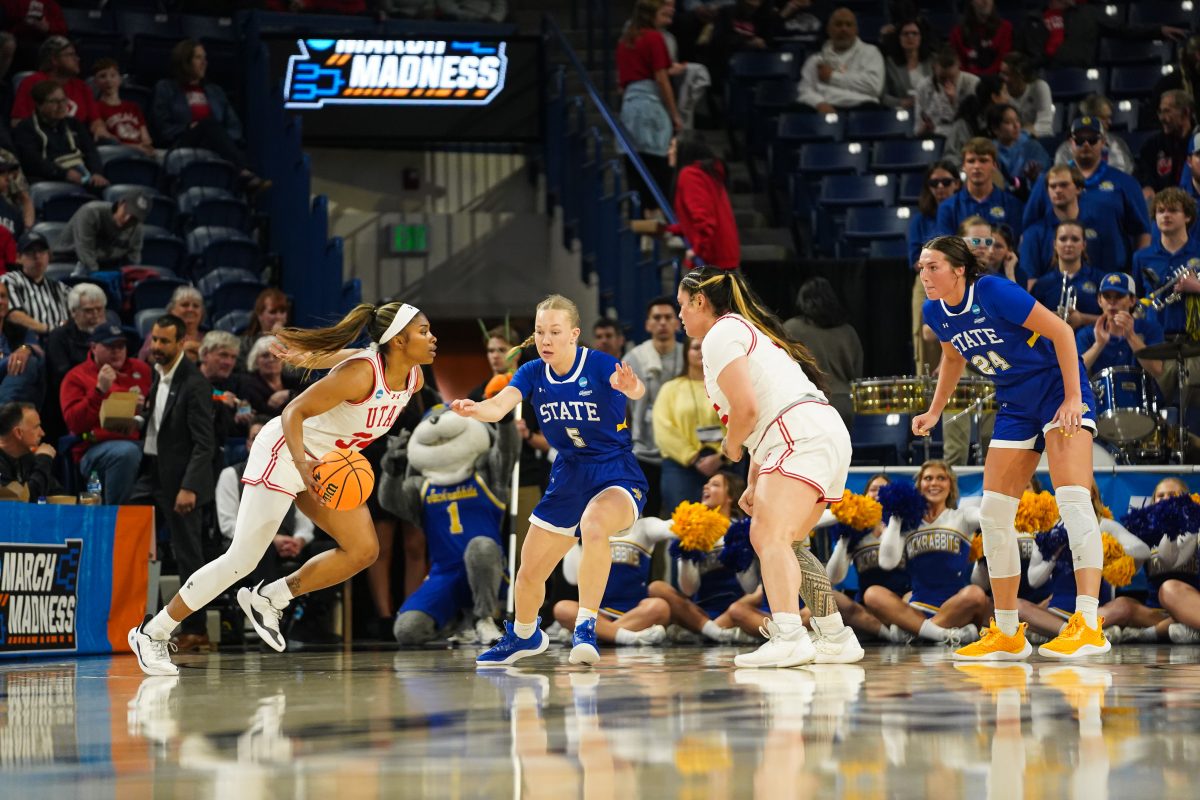Technology holds value in classroom
February 13, 2006
Denise Watt
In today’s classroom, technology may be just as valuable as the traditional pen, paper and books.
Students in journalism Professor Matthew Cecil’s editing class learned firsthand about new technology last week in their lab. Argus Leader sports staff produced their weekly podcast live from the editing laboratory in SDSU’s Yeager Hall.
The Argus Leader offers two weekly podcasts, one focusing on sports and one on politics, said Cecil.
Last week’s edition of the Argus Leader Sports Web featured SDSU Women’s Basketball Coach Aaron Johnston.
Before recording the nearly 30-minute show, Sports Editor Stu Whitney, sports reporters Mick Garry and Chirs Solari, and Online Editor Cory Beck talked to the class about their experiences in journalism. The four answered student questions as well.
“It has been my experience that veteran journalists are often very interested in sharing what they have learned with journalism and mass communication students,” said Cecil, who worked as an Argus Leader political reporter from 1990 to 1992.
The paper began offering the podcasts last fall. People download the podcasts nearly 20,000 times each week, said Beck. Listeners can access them through the paper’s Web site, or through iTunes.
From iPods to Facebook, students use technology every day, said Cecil. Students now use their technology skills in the classroom as well.
“Our department has moved aggressively to bring new media opportunities to our students,” said Cecil, who cited examples of students podcasting and blogging in their classes. “It’s an integral part of our curriculum.”
“Technology and journalism is very important as consumers are demanding new and different ways to get their news,” said Miranda Reiman, a senior agricultural journalism major and student in Cecil’s editing class. “As students, it’s very important that we continue searching for new and different ways to deliver that news.”
Reiman said that before talking about podcasts in class, she didn’t know much about them.
“I think it’s a really good way for newspapers to stay engaged with their audience,” she said.
Students can learn from the professionals behind the technology as well.
“It’s important to understand that this may be new media, but it really comes down to old-fashioned reporting,” Cecil said. “Without the experience of guys like Stu Whitney, Mick Garry, Chris Solari and Cory Beck, it’s just sterile technology.”
“It’s the technology that makes it possible, but it’s their expertise that makes it good. I think the students got a sense of that.”
“I think it’s really important to see people actually doing what we’re training to do,” said Reiman. “I thought that it was really neat to see journalism in action.”

